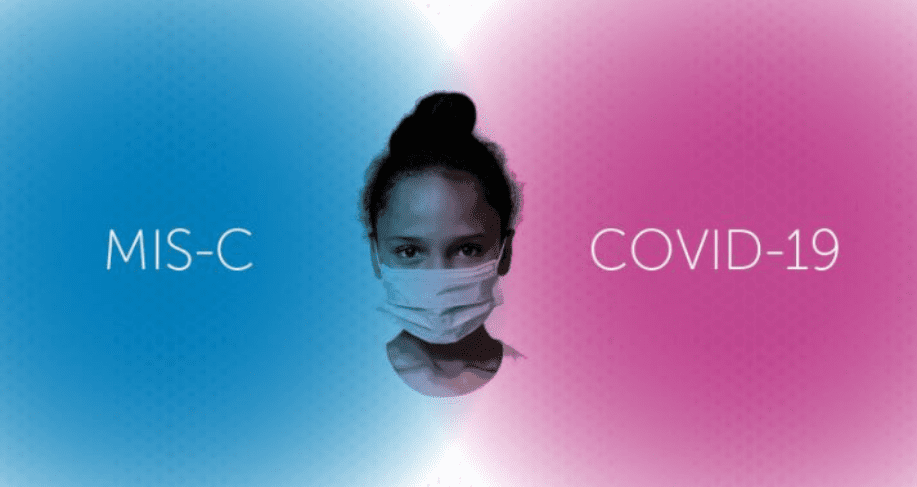While the world has not yet recovered from the coronavirus, another directly related disease has appeared in many parts of the world. It is about MIS-C (Multisystem Inflammatory Syndrome). It occurs mainly in children who have taken Covid-19 and can have fatal consequences if left untreated.
But what is MIS-C?
Multisystem Inflammatory Syndrome appears to be associated with coronavirus. Most children who are infected with COVID-19 develop mild symptoms, but unfortunately MIS-C affects some organs and tissues – such as the heart, lungs, blood vessels, kidneys, digestive system, brain, skin or eyes.
MIS-C is a syndrome – a set of signs and symptoms, not a disease because we do not have much information about this syndrome, including the cause and risk factors, reports abcnews.al
Identifying and studying children who have MIS-C can help find the cause. The US Centers for Disease Control and Prevention (CDC) and the National Institutes of Health are working with physicians and researchers across the country to learn more about the risk of MIS-C, thus sharing the necessary data for find a more effective treatment for treating MIS-C.
In some rare cases, adults develop signs and symptoms similar to MIS-C. This new and serious syndrome, called Multisystem Inflammatory Syndrome (MIS-A), occurs in adults who have been infected with COVID-19 and most of them were not even aware of it.
MIS-A occurs several weeks after COVID-19 infection. If you suspect we have MIS-A, an anti-COVID test can diagnose if you have MIS-A. MIS-C is rare, and most children are cured if they get the right medication. But some children may have even more severe symptoms to the point that their lives are in danger.
But of course more studies are needed about this inflammatory syndrome, reports abcnews.al
Symptoms
Signs and symptoms of Multisystem Inflammatory Syndrome in children (MIS-C) are:
-Fever lasting 24 hours or longer
-Vomiting
-Diarrhea
-Stomach pain
-Redness of the skin
-Fatigue
Frequent heartbeats
-Quick breathing
-Fy eyes
Redness or swelling of the lips and tongue
Redness or swelling of the hands or feet
-Headache or dizziness
– Enlarged lymphedema
MIS-C warning signs
-Severe stomach pain
-Difficulty breathing
-Skin, lips or nails are pale, gray or blue – depends on skin pigment
-You feel powerless
When to see a doctor
If your child has any of the signs listed above and is sick then consult a doctor immediately and go to the hospital. If your child is not sick but has other signs or symptoms of MIS-C, contact your child’s doctor immediately for advice. Doctors may ask you to have tests – such as blood tests, or lung x-rays or abdominal echoes – to check for areas of inflammation and other signs of MIS-C.
Causes
The cause of MIS-C is not yet known, but it is thought to be the COVID-19-associated immune overreaction. Many children with MIS-C have high levels of antibodies. This means that they have been infected with COVID-19.
factor of risk
In the US, colored and Latino children are more affected by MIS-C than children of other races and ethnic groups. Further studies are certainly needed to determine why MIS-C affects these children more than others. .
Some of the factors may be, for example, lack of information and health services, as well as risks associated with genetics. Most children with MIS-C are from 3 and 12 years old, with an average age of 8 years. But some cases have been found in older children and infants, reports abcnews.al
Complications
Many specialists consider MIS-C to be a complication of COVID-19. Without an early diagnosis and proper treatment, MIS-C can cause serious problems in vital organs, such as the heart, lungs or kidneys. In rare cases, MIS-C can even cause death.
prevention
In the US, children over the age of 12 will be vaccinated with Pfizer-BioNTech. The vaccine can prevent you or your baby from becoming infected with COVID-19. Also, if you and your child are fully vaccinated, then you can return to normal activities – including not wearing a mask or social distance.
If you or your child is not vaccinated, there are many other steps you can take to prevent COVID-19 infection and its spread to others, reports abcnews.al
Some of the measures:
Wash your hands often with soap and water for at least 20 seconds. In the absence of a soap then use disinfectant that contains at least 60% alcohol.
-Do not meet people who are sick, especially people who cough, sneeze or have other signs that indicate they may be sick.
-Keep the distance. This means you need to stay at least 2 feet away from other people.
-Keep fabric masks in public places. When indoors or outdoors, where there is a high risk of transmitting COVID-19, such as at a crowded event or at a large gathering, it is necessary to wear masks.
-Avoid touching the nose, eyes and mouth.
-Cover your mouth with your elbow when you sneeze or cough. Because in this way we avoid the spread of microbes.
-Clean and disinfect the surfaces you touch every day. This includes; door handle, keys, remote control, desk, chairs, keyboard, faucet and toilet. abcnews.al




